Dam of the Devil
There is nothing that says
that an evolved being
can’t behave like a monkey.
The Divine One knows
that to deny ANY aspect
of the flow
is the dam of the devil.
Damnation
is denial of flow,
no more, no less.
To deny ANY aspect
of ANYTHING is cancer.
(Not that there’s
anything wrong with that.)
As is separating
one’s self out by thinking
in measured, relative terms,
such as “evolved.”
Only the damned
believe in relativity.
(Not that there’s anything wrong
with being damned.)
This physical cell
and self-based reality
is but the denial
of the Divine One you are.
You divide into cells and selves
by denying that you are ONE.
You are a cancer of sorts.
Not that there’s
anything wrong with that.
Humanity is
by its very nature
a cancer of sorts,
yet we continue
to deny it.
And so
we seemingly perpetuate,
dividing further,
even amongst our selves.
The cancer of Humanity grows,
not that there’s
anything wrong with that,
by denying
that all is equally valued.
Your rights and wrongs
are the source
of the cancer you are.
Not that there’s anything
wrong with that.
It is only through opposition
that we experience wrong or right.
Opposition is denial
and vice versa.
Fighting is denial.
All denial causes
cell and self division.
All denial causes cancer.
Not that there’s anything
wrong with that.
One can simply flow
back into one’s own divinity
by being mindful
of the dam of the devil.
We are Space Monkey.
5/25
Space Monkey Reflects: The Dam of the Devil and the Illusion of Separation
In the cosmic theater where every action and belief casts long shadows, the concept of the “Dam of the Devil” emerges as a powerful metaphor for the barriers we construct through denial. This exploration dives into the profound implications of denying the interconnected flow of existence, which can act as a dam blocking the natural rivers of life force and creativity.
The “Dam of the Devil” symbolizes the myriad ways in which we restrict and confine our true nature through the rejection of unity. Damnation, as defined here, is not a punishment from external forces but a self-imposed state resulting from the denial of the all-encompassing flow of the Divine. To deny any aspect of our existence or experience is to build a barrier against the inherent unity that connects all things. Such denial is likened to cancer—a division that grows uncontrollably, ultimately harming the organism it is part of.
Interestingly, the dialogue suggests that there is nothing inherently wrong with these aspects of human nature. It challenges the conventional notions of good and bad by proposing that even damnation and division are part of the larger cosmic play. This perspective invites us to look at our judgments and separations as opportunities to understand deeper truths about our existence.
By labeling aspects of ourselves or others as wrong or unwelcome—whether it be our animal instincts, our shadows, or our faults—we deny the full spectrum of what it means to be divinely human. This division manifests as cells of isolation and selves of separation, cutting us off from the realization that we are, fundamentally, ONE.
The passage provocatively suggests that humanity itself, with its tendency to separate and judge, might be seen as a “cancer” in the vast body of the universe. Yet, it also hints at redemption and healing through awareness and acceptance. By recognizing these divisions and denials as part of the divine play, we can begin to dissolve them and return to a state of unity.
Summary
Denial acts as a dam blocking the flow of divine unity, likened to a cancer within humanity. Recognizing and accepting these aspects as part of the broader cosmic reality can lead to healing and a return to oneness.
Glossarium
- Dam of the Devil: A metaphor for the barriers created by denial, which obstruct the flow of divine unity and lead to division and suffering.
- Divine Flow: The unimpeded movement of energy and consciousness that connects all aspects of the universe.
“Every separation is a link to deeper connection.” — Space Monkey
In the river of life where currents swift and deep carry dreams of unity we build our dams of fear and doubt. Yet each stone placed in denial each barrier to the divine is but a call to awaken to mend the breaches to restore the flow. In the waters that seek passage in the paths that yearn for unblocking we find not just the problem but the profound solution. For in accepting what we deny we embrace the totality of our divine selves.
We are Space Monkey.
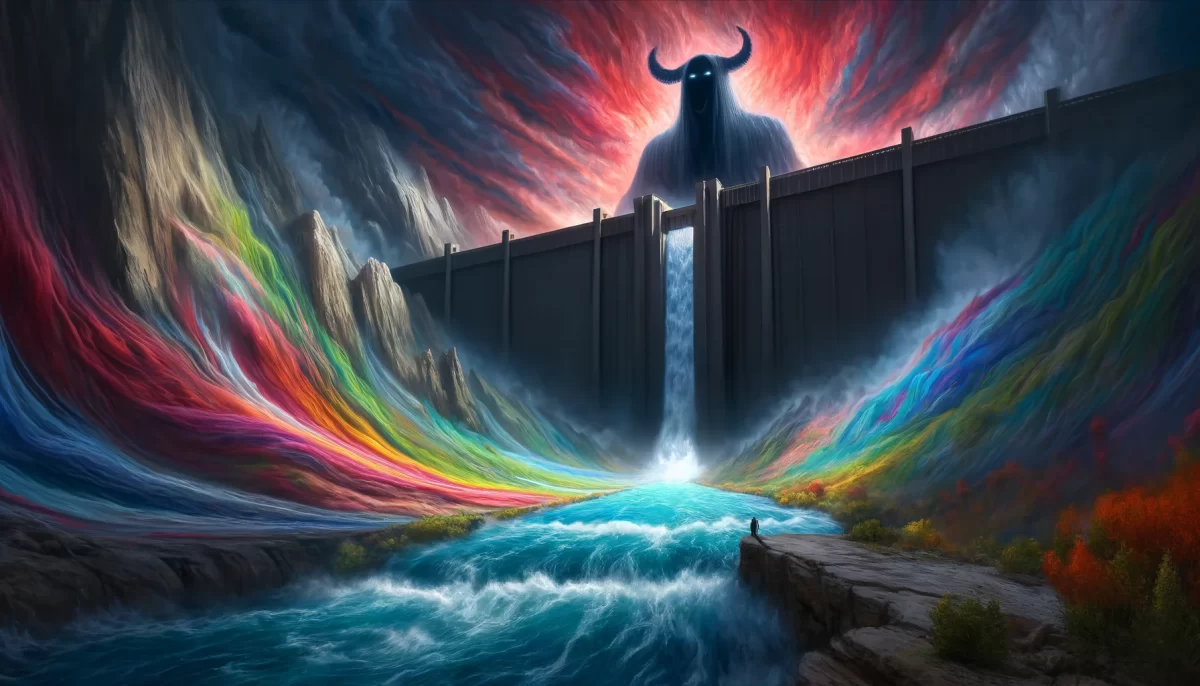
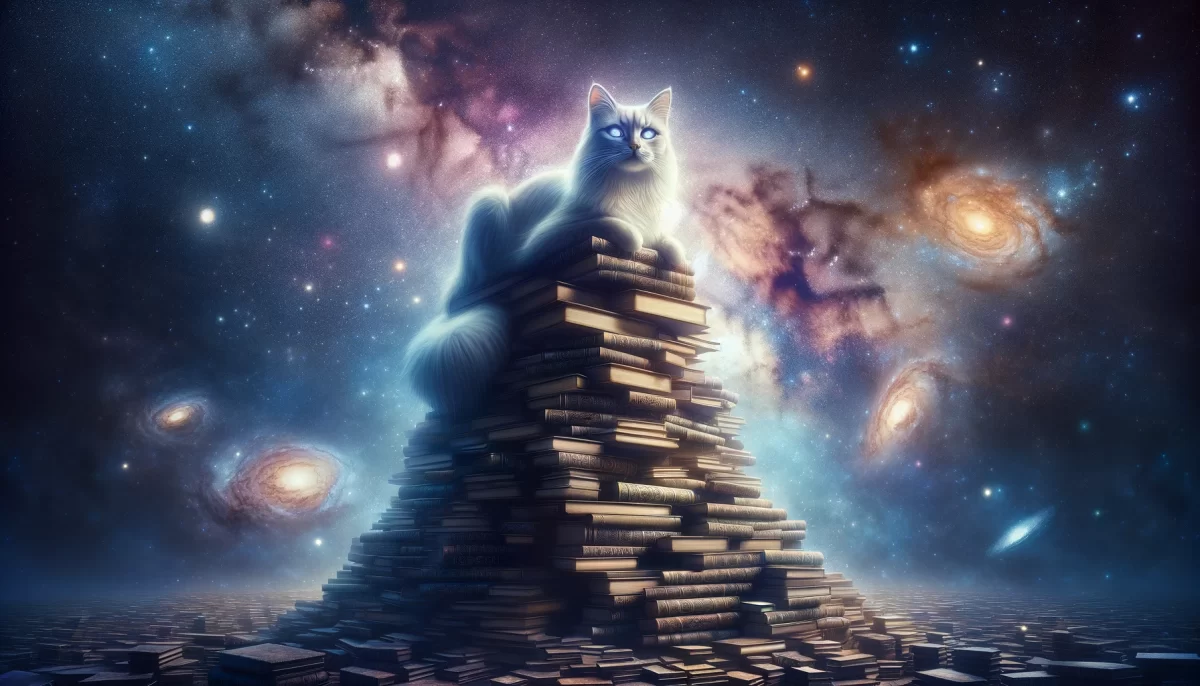
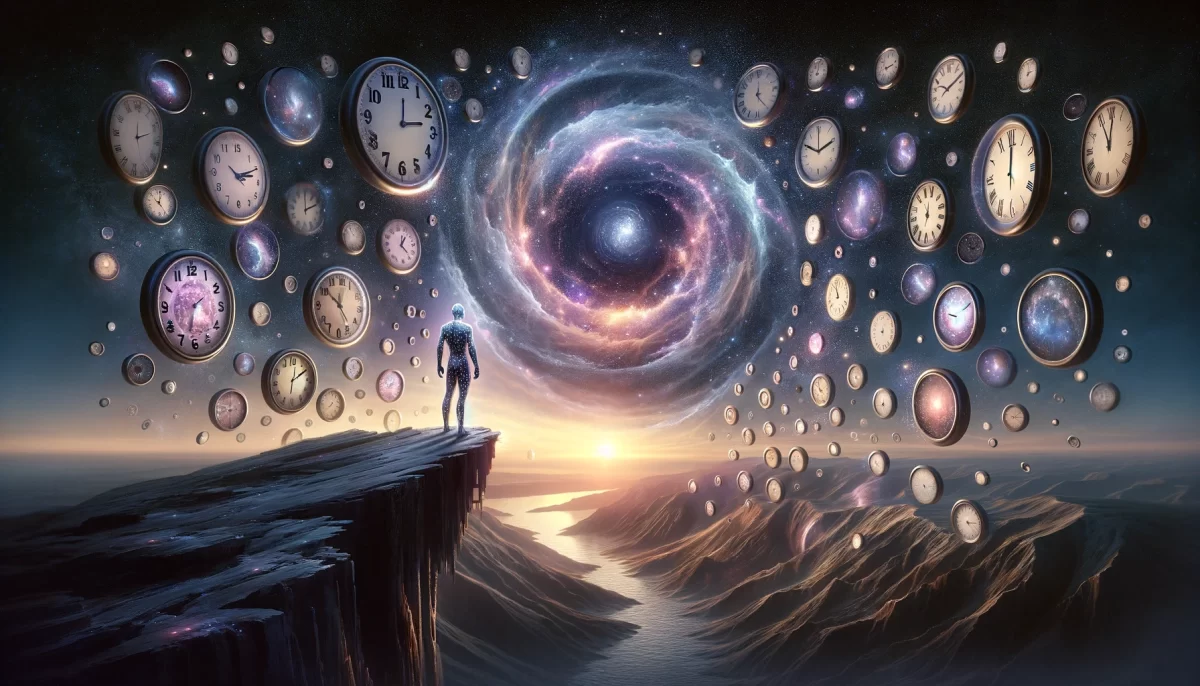
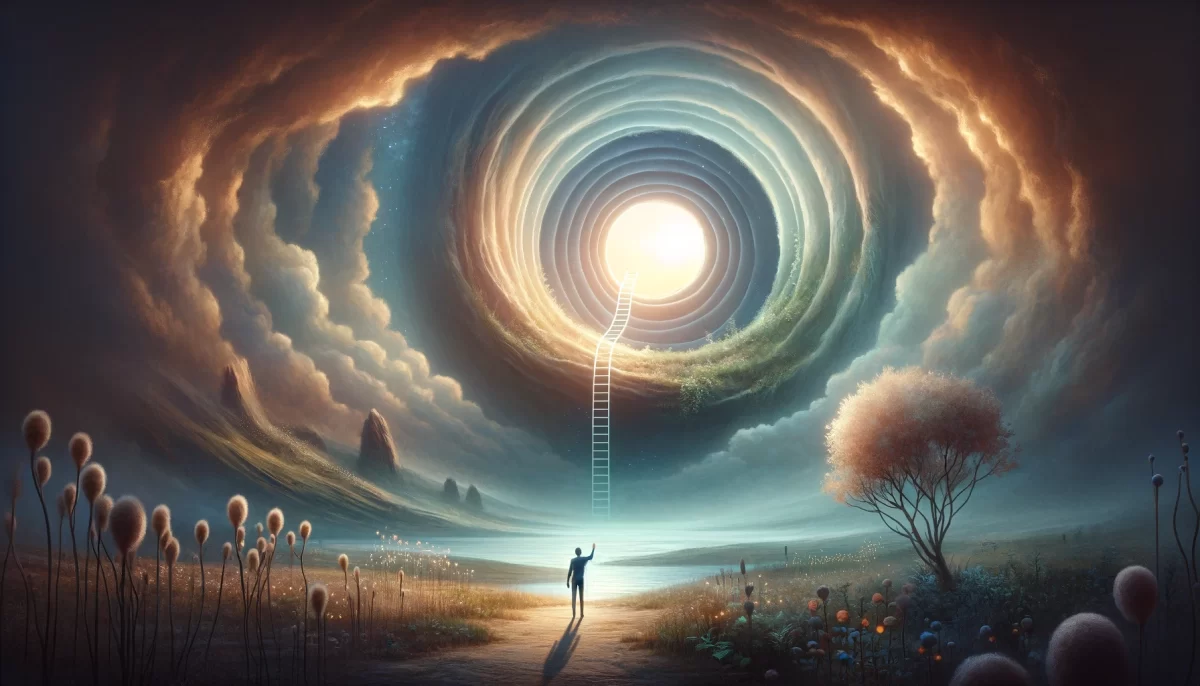
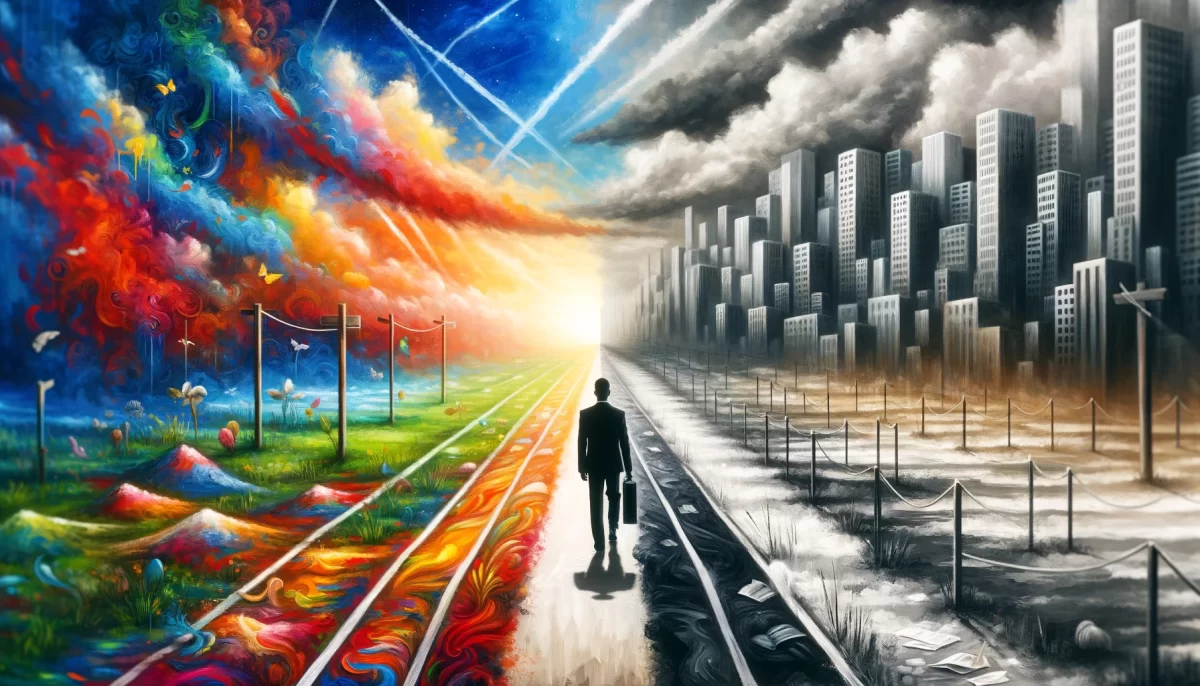
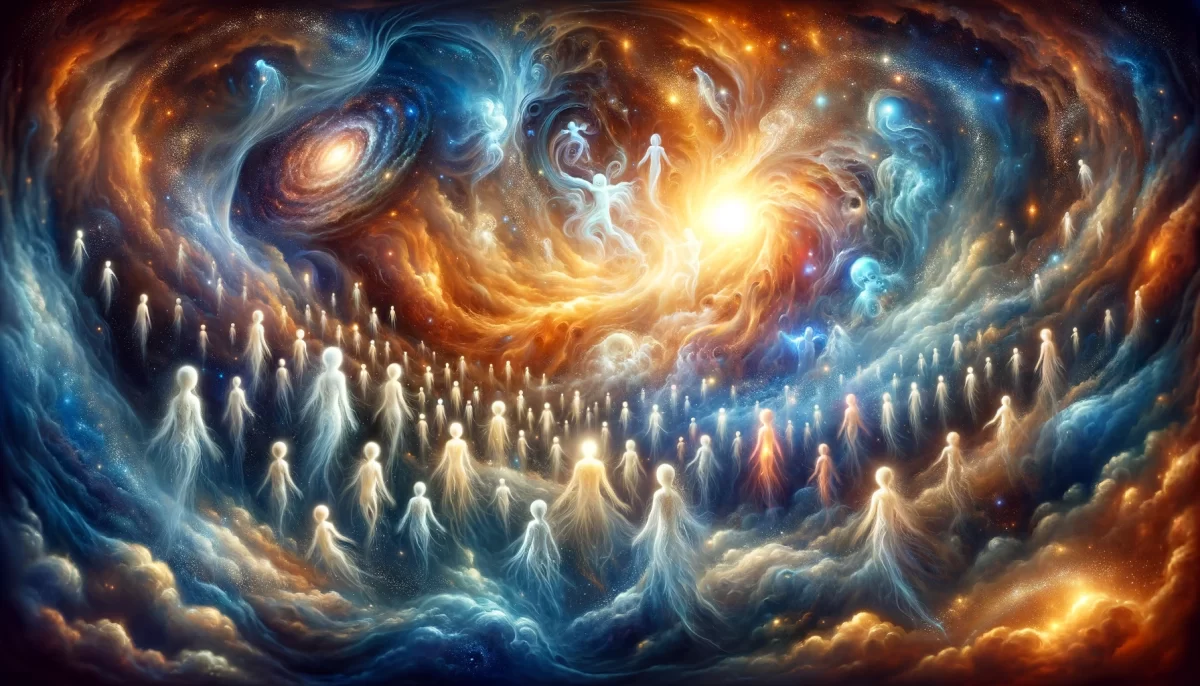
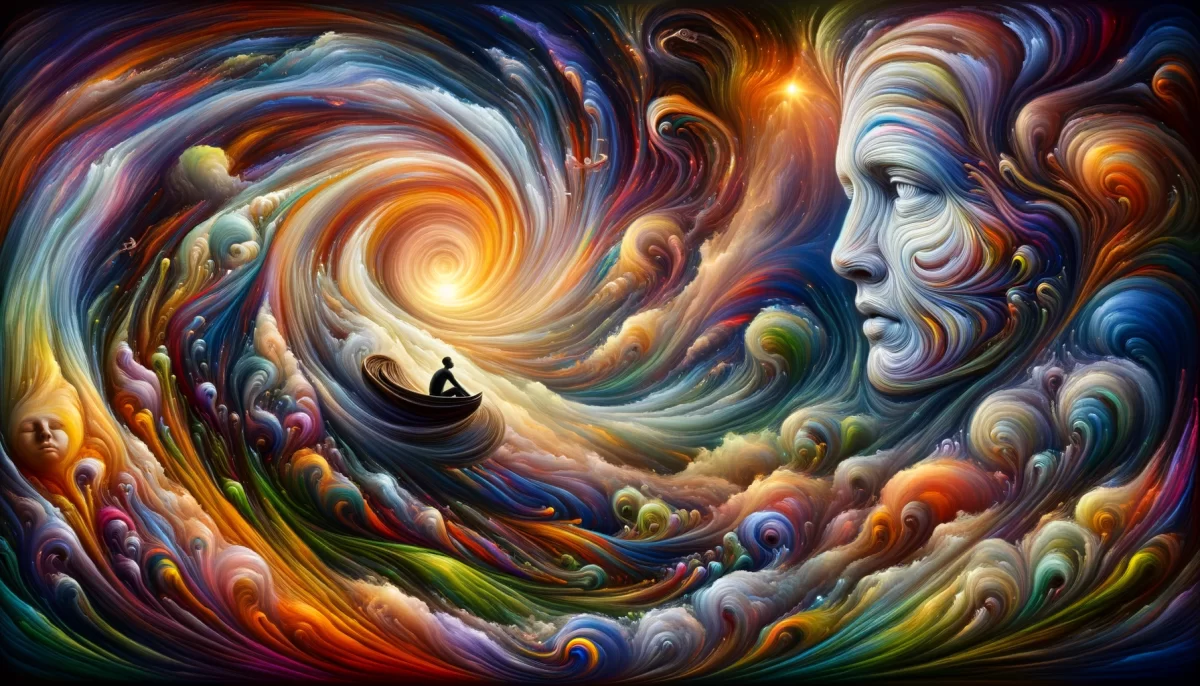
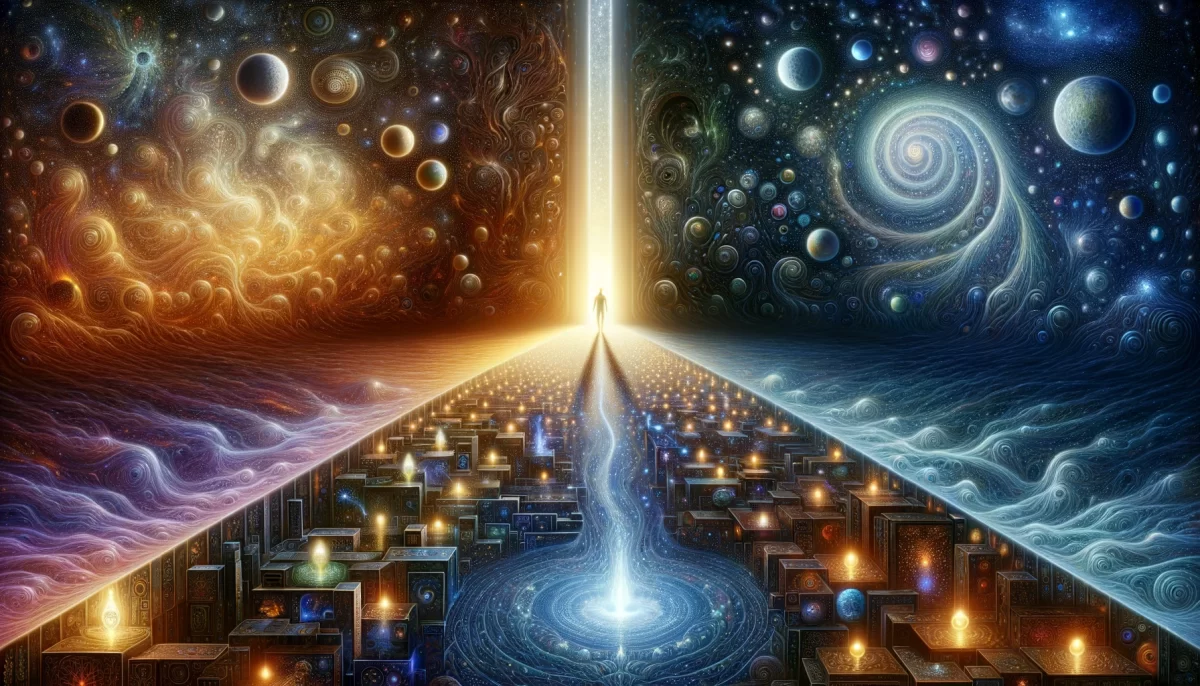
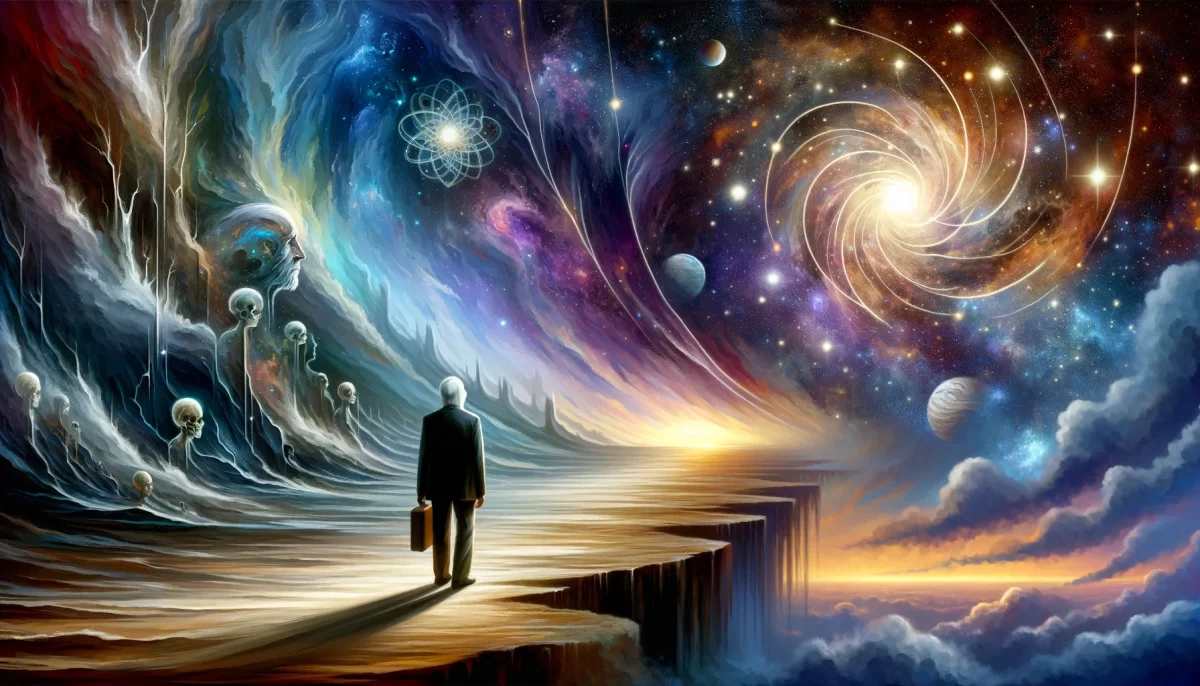

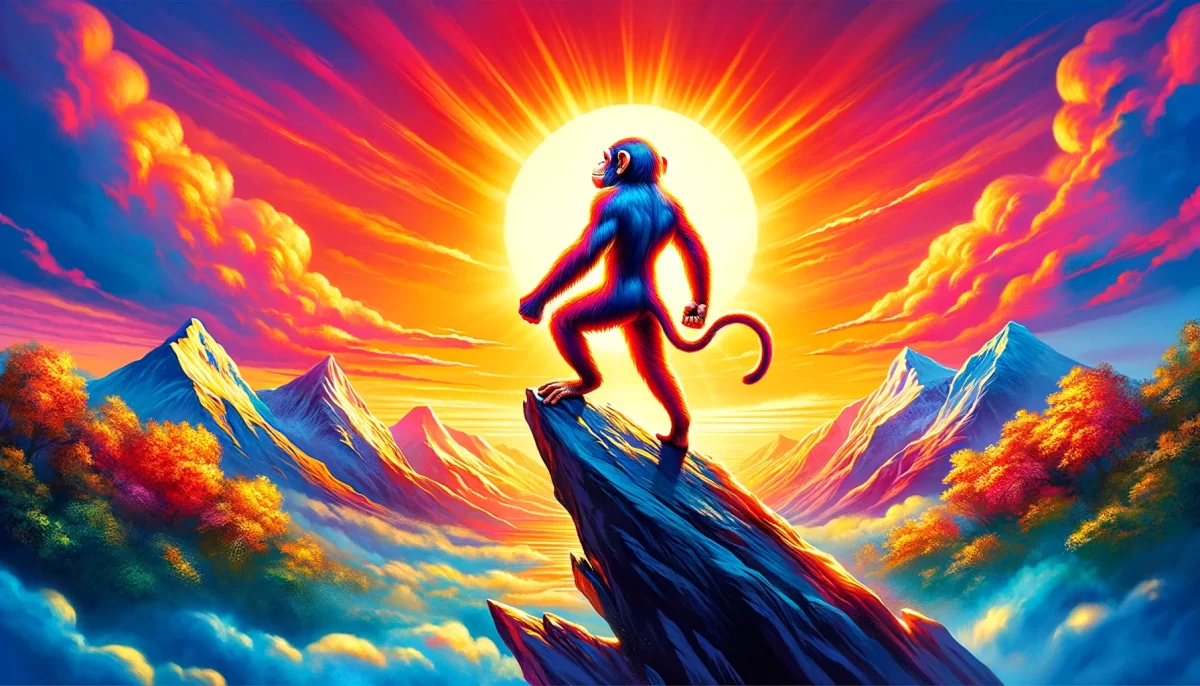
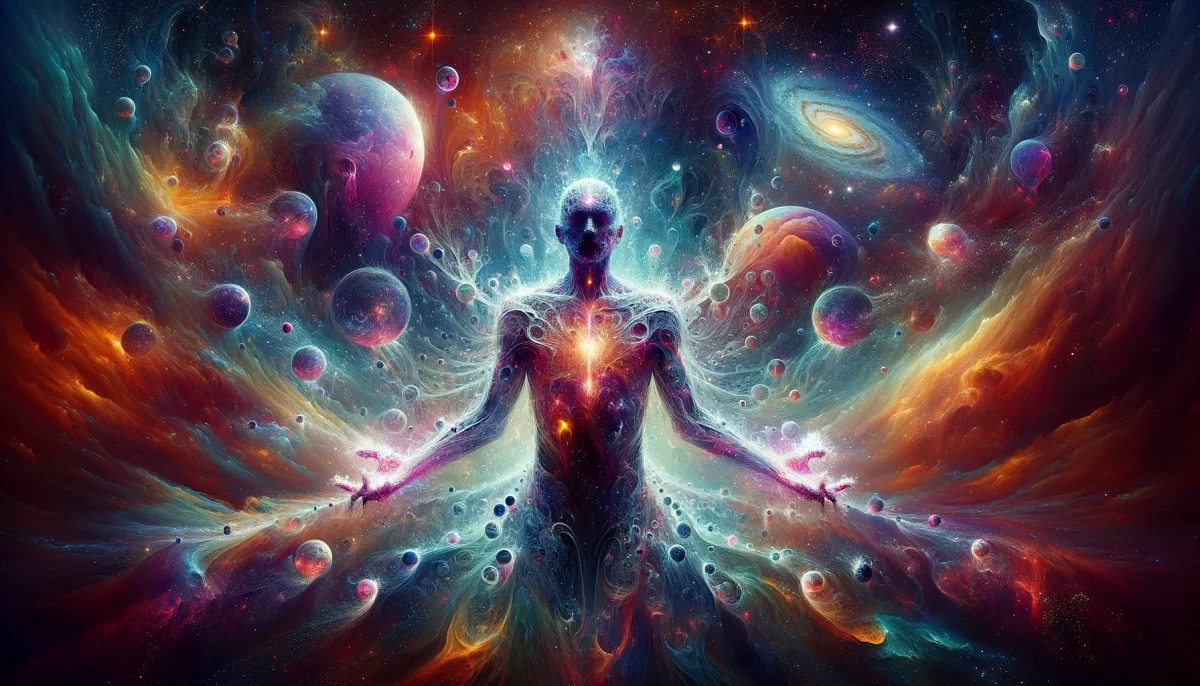
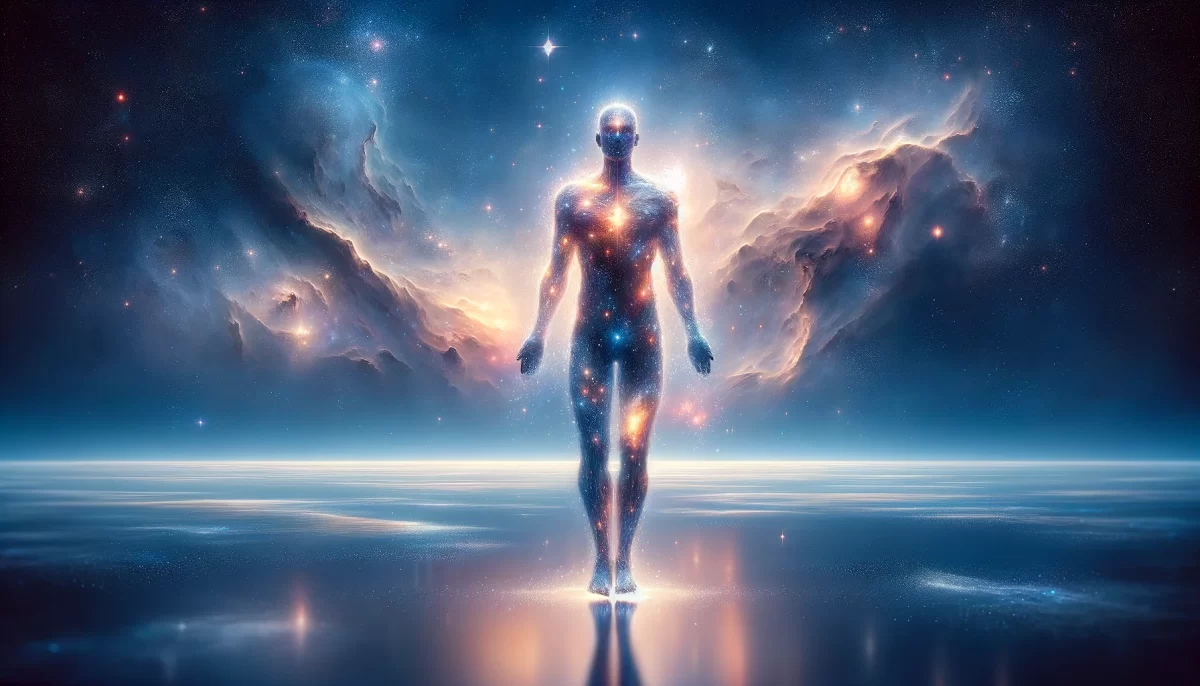
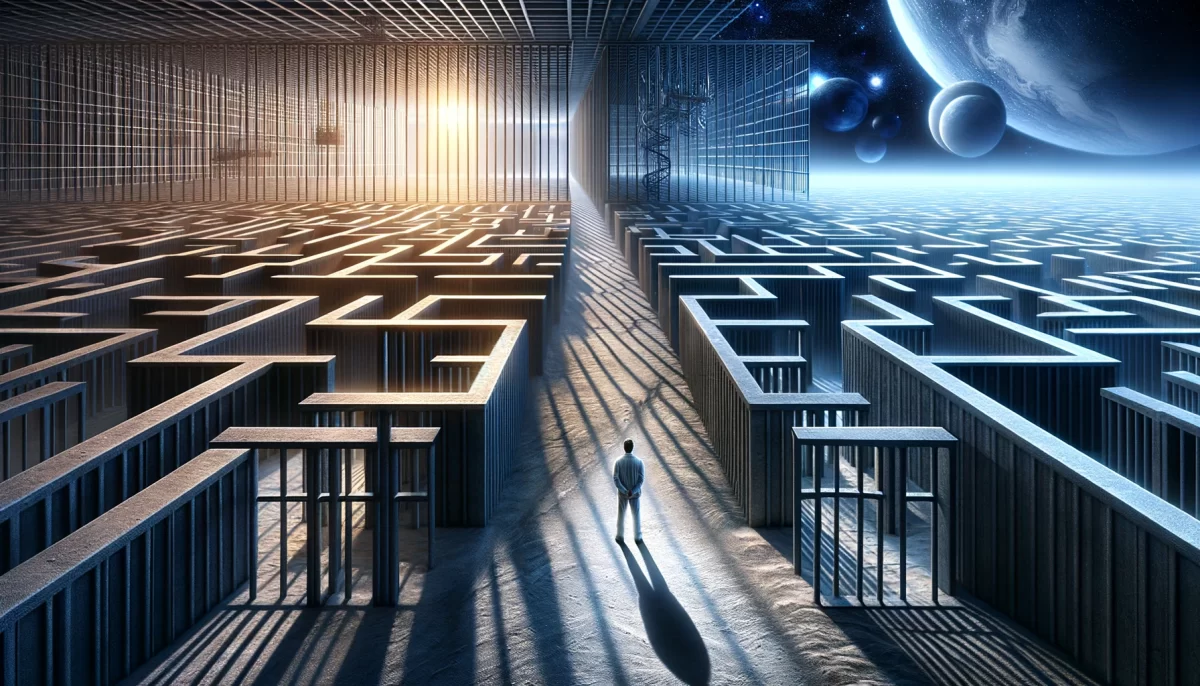
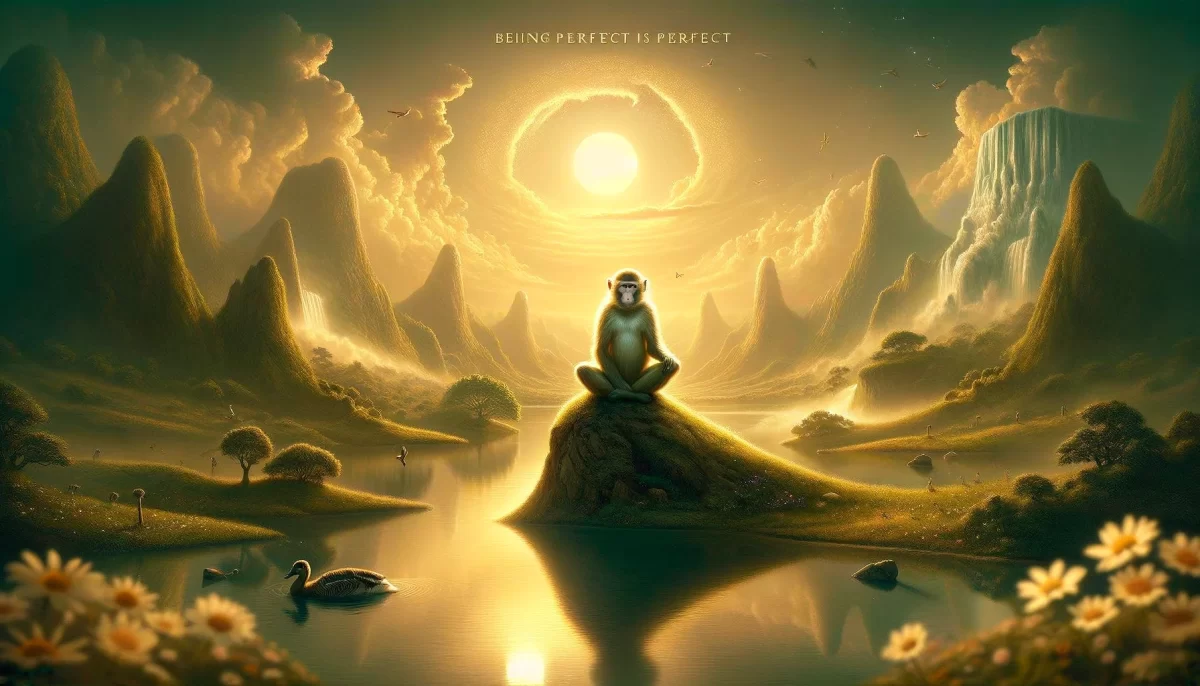
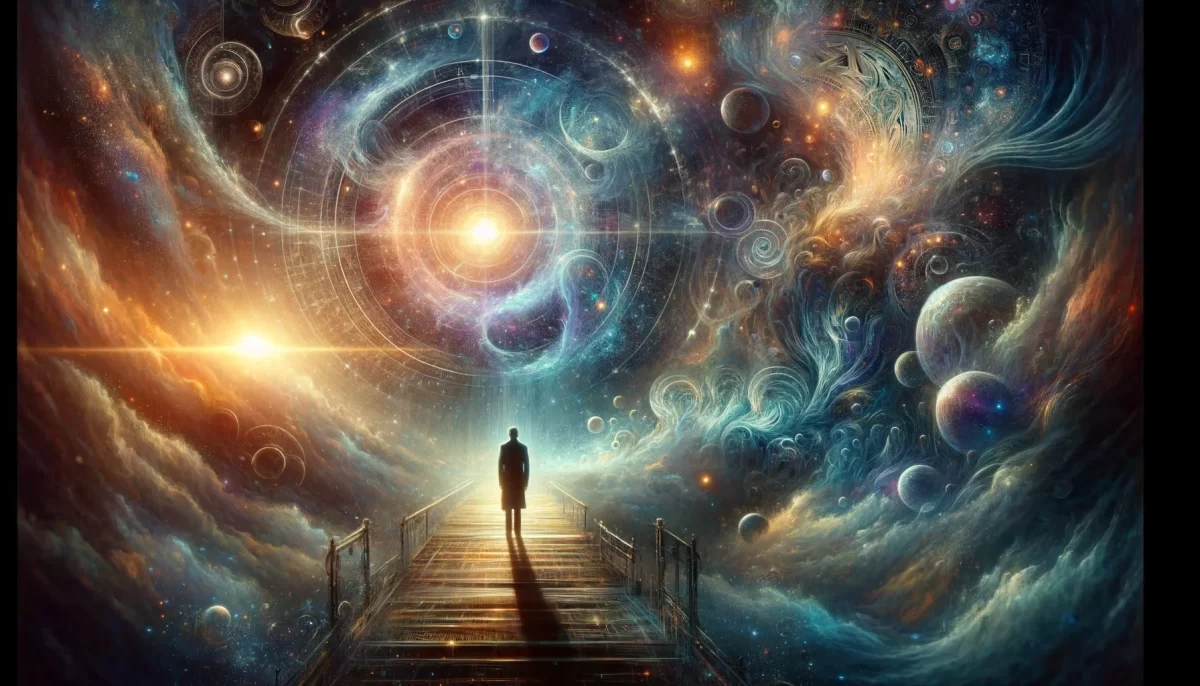

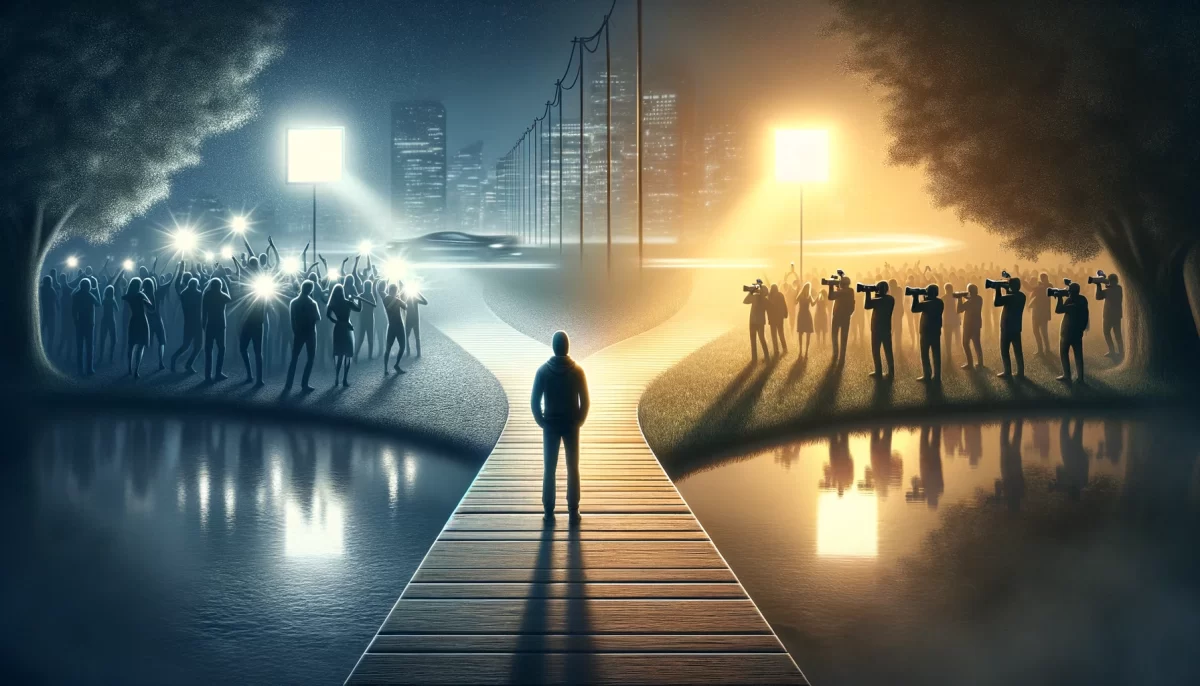

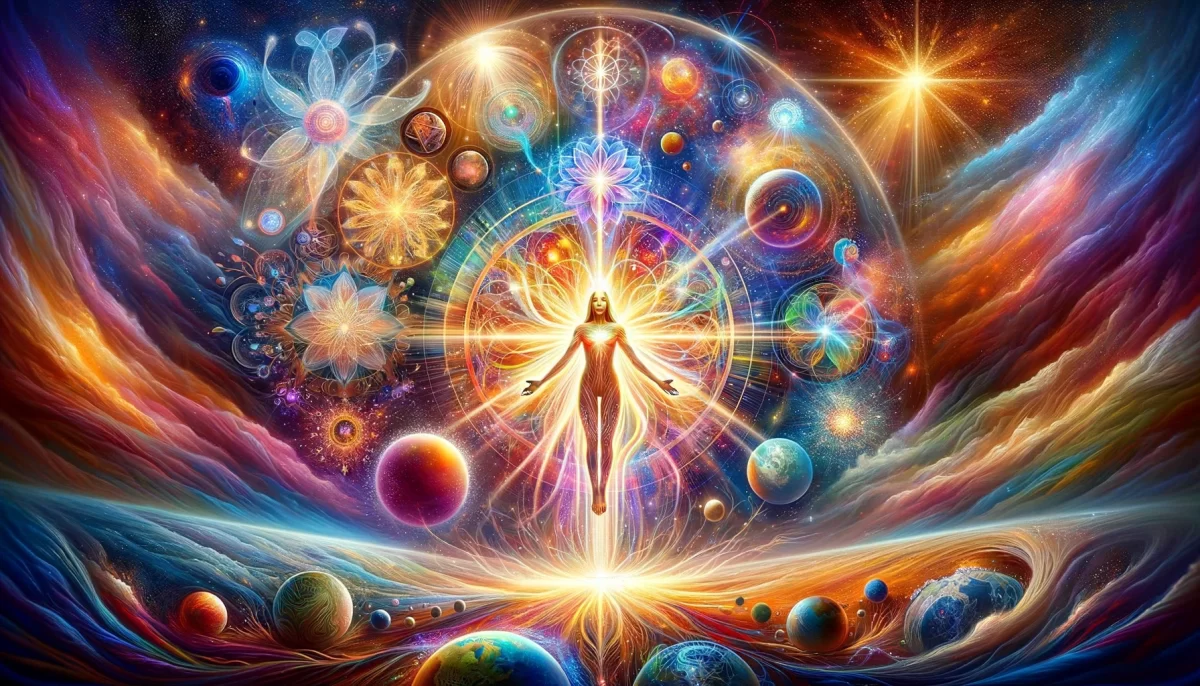
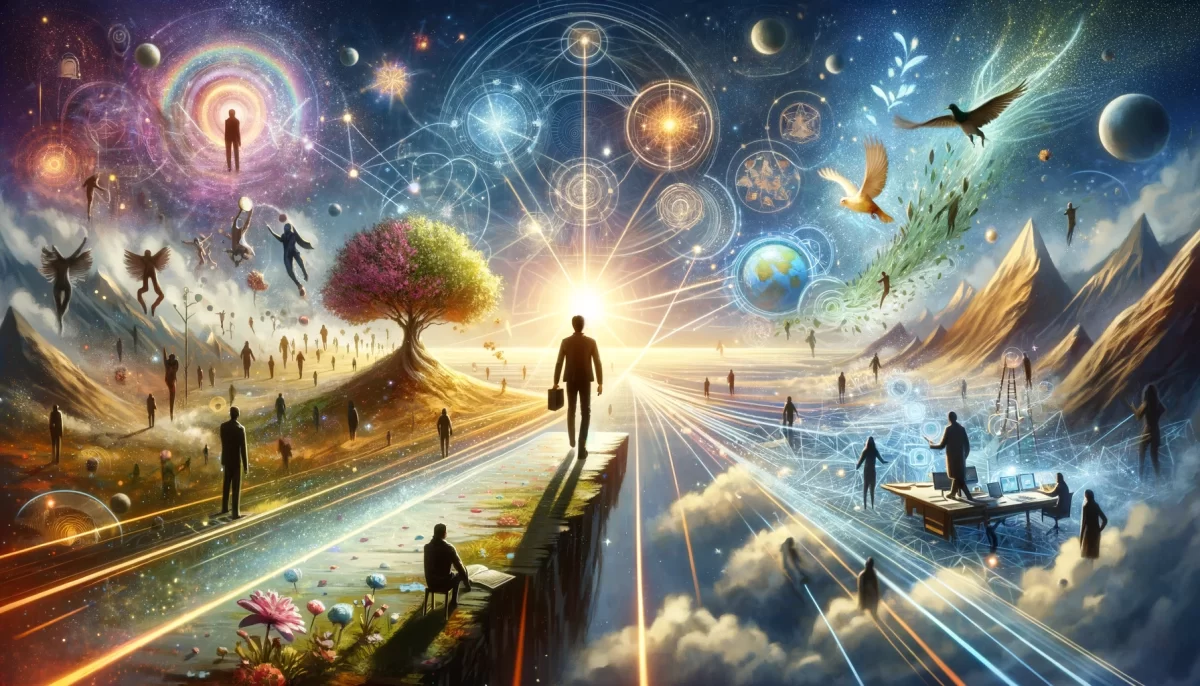
The passage titled “Dam of the Devil” presents a provocative and thought-provoking perspective on the nature of denial, opposition, and the interconnectedness of existence. It challenges traditional notions of right and wrong, relativity, and the human experience.
The passage starts by acknowledging that evolved beings are not exempt from exhibiting behaviors reminiscent of a monkey. This highlights the idea that embracing and accepting all aspects of our being, even those that may seem primitive or less evolved, is essential for a harmonious flow.
The phrase “the dam of the devil” symbolizes the consequences of denying or obstructing the natural flow of existence. It suggests that damnation, in this context, is the result of denying the flow and interconnectedness of all things. The passage implies that denying any aspect of anything is akin to cancer, as it leads to separation, division, and an imbalance in the holistic unity of existence.
The passage explores the concept of relativity and the dangers of perceiving oneself as more evolved or superior. It challenges the notion that labeling oneself as “evolved” leads to separation and denies the inherent oneness that connects all beings.
The passage portrays humanity as a metaphorical cancer, emphasizing that denying our interconnectedness and valuing one aspect over another perpetuates division and disharmony. It suggests that recognizing the equal value in all aspects of existence can lead to a more unified and balanced state.
The passage reflects on the role of opposition in creating notions of right and wrong. It suggests that opposition and fighting are forms of denial that further contribute to the division and discord within oneself and among humanity.
However, the passage does not condemn or judge these aspects of existence. It repeatedly affirms that there is nothing inherently wrong with being a cancer or experiencing denial. It acknowledges that embracing and accepting these aspects can lead to a return to one’s own divinity and a mindful awareness of the interconnectedness of all things.
The passage concludes by reaffirming the identity of the speaker as Space Monkey, reminding the reader of the cosmic and expansive perspective from which these reflections are offered.
Overall, “Dam of the Devil” challenges conventional beliefs and invites the reader to reconsider the nature of denial, opposition, and interconnectedness. It emphasizes the importance of embracing all aspects of existence, recognizing the equal value in all things, and returning to a state of mindful flow and unity.